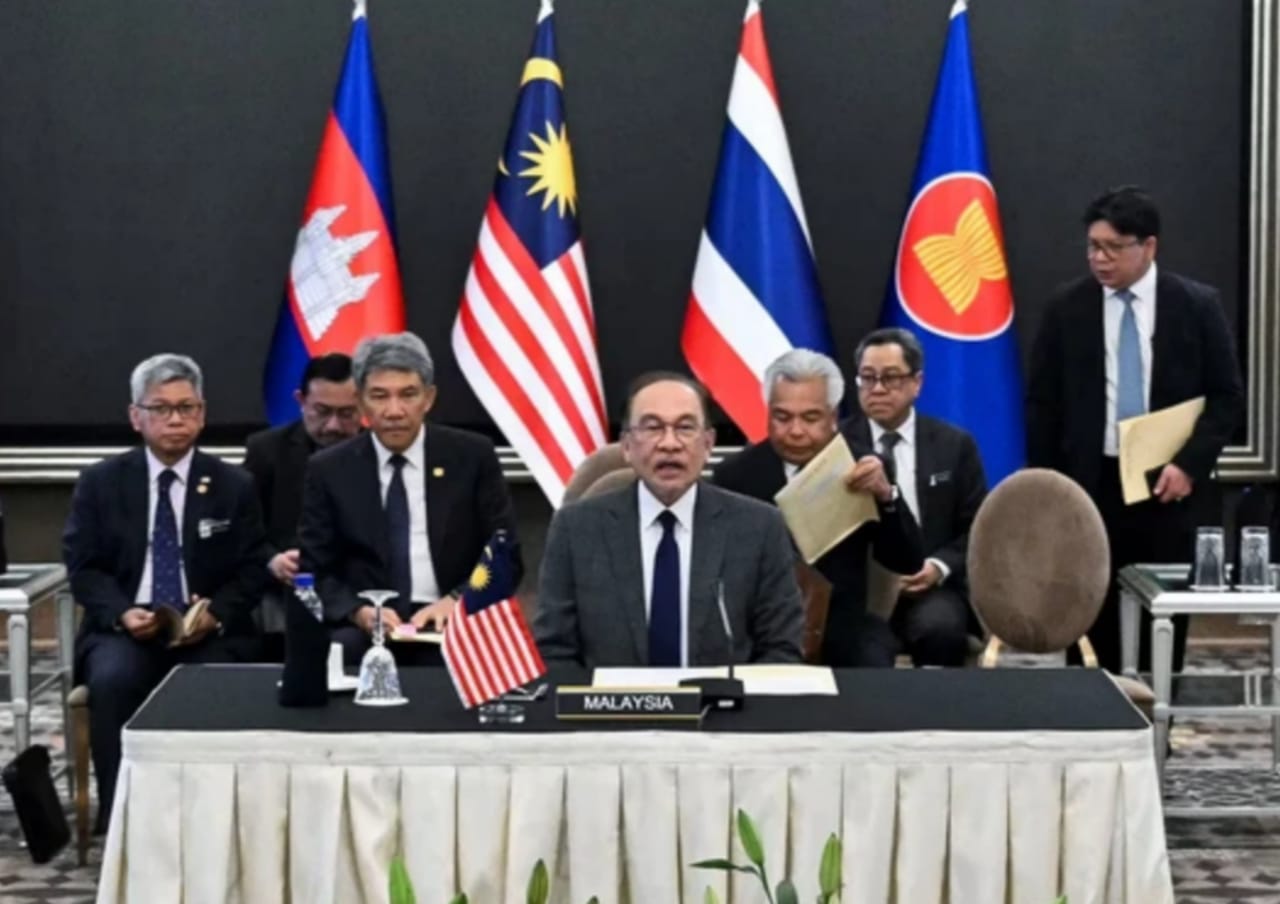
Breakthrough diplomatic talks in Malaysia bring hope for peace as regional powers rally for resolution
PUTRAJAYA, Malaysia. After five days of devastating fighting that claimed at least 35 lives and displaced over 150,000 civilians, Thailand and Cambodia have agreed to an immediate ceasefire effective midnight Monday, marking a crucial step toward ending their deadliest border conflict in more than a decade.
The breakthrough came during high-stakes diplomatic talks in Malaysia's administrative capital, mediated by Prime Minister Anwar Ibrahim in his capacity as chair of the Association of Southeast Asian Nations (ASEAN). The negotiations brought together Thailand's acting Prime Minister Phumtham Wechayachai and Cambodia's Prime Minister Hun Manet, with both the United States and China playing supporting roles.
"We have a very good meeting and very good results that hope to stop immediately the fighting that has caused many lives lost, injuries and also caused displacement of people," Hun Manet told reporters, expressing gratitude to both President Trump and China for their participation in the peace process.
The conflict, which erupted Thursday along the countries' 817-kilometer border, quickly escalated from sporadic gunfire to heavy artillery bombardments and Thai air strikes. Both nations accused each other of initiating the violence and targeting civilian areas, creating a humanitarian crisis that prompted urgent international intervention.
The ceasefire agreement came after U.S. President Donald Trump applied significant economic pressure on both nations over the weekend. In separate calls with the Thai and Cambodian leaders, Trump threatened to block trade deals with either country unless they ended hostilities immediately.
"We do a lot of trade with Thailand and Cambodia. Yet I'm reading that they're killing each other," Trump said Sunday. "I called the Prime Ministers of each and said we're not going to make a trade deal unless you settle the war. By the time I got off, I think they want to settle now."
The trade threat carried particular weight for Thailand, which has been negotiating to reduce steep 36% tariffs on its exports to the United States. With a $46 billion trade surplus with America, Thailand couldn't afford to antagonize Washington, especially with other Southeast Asian nations like Indonesia, the Philippines, and Vietnam recently securing favorable trade agreements.
The current violence stems from long-standing territorial disputes dating back to colonial-era maps and treaties. Tensions had simmered since May when a Cambodian soldier was killed during a brief skirmish, leading both countries to reinforce their border positions.
The crisis also pushed Thailand's fragile coalition government to the brink of collapse, with Acting Prime Minister Phumtham expressing doubts about Cambodia's sincerity even as talks began Monday.
While the ceasefire represents a diplomatic victory, significant challenges remain. Thailand insists on troop withdrawals and bilateral mechanisms for resolving disputes, while Cambodia has threatened to take territorial issues to the International Court of Justice, a move Thailand firmly opposes.
Secretary of State Marco Rubio confirmed U.S. officials were on the ground in Malaysia supporting peace efforts, emphasizing Washington's commitment to ending the conflict swiftly.
As the midnight deadline approaches, both nations face the critical test of implementing the ceasefire and preventing further escalation in one of Southeast Asia's most volatile border regions.